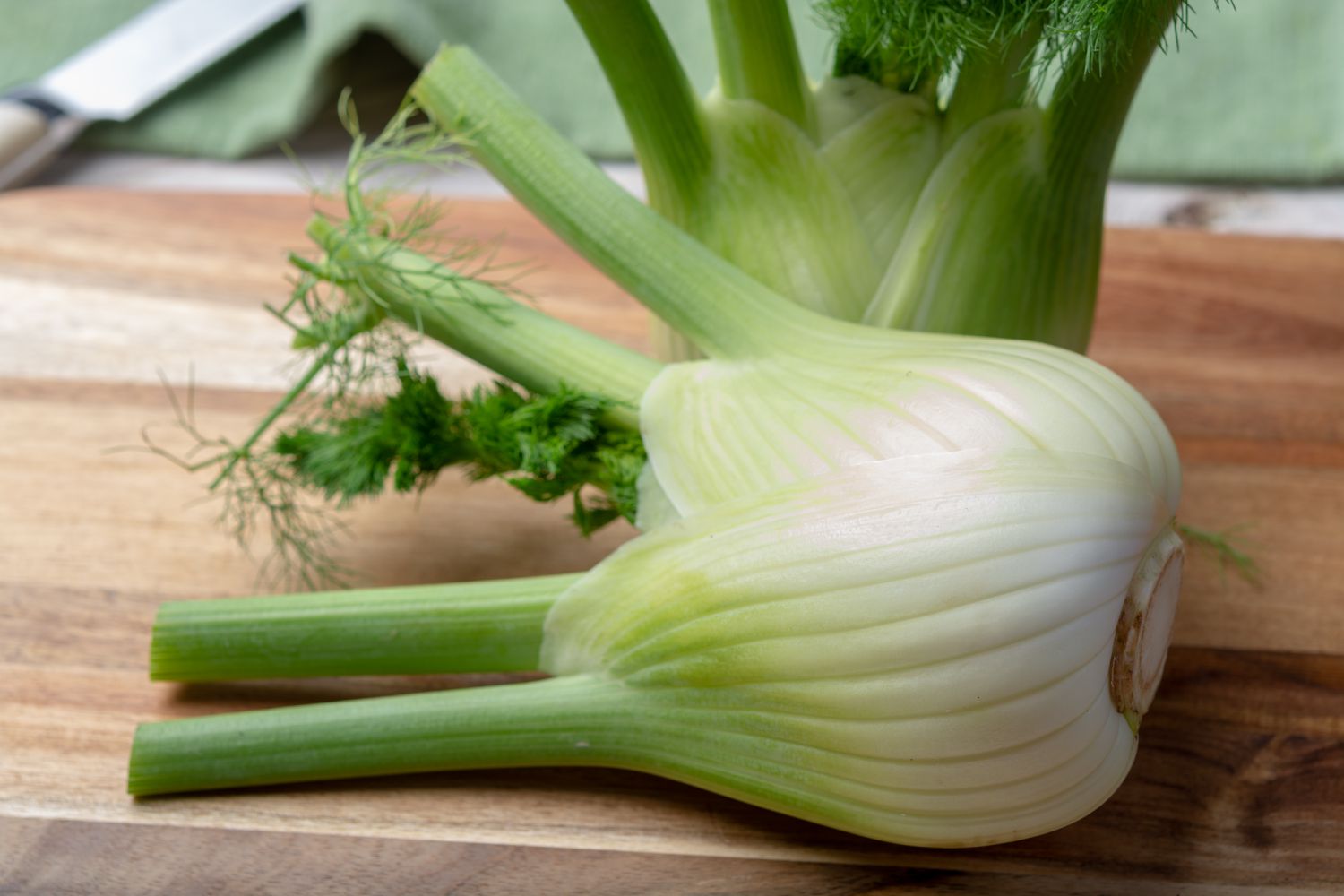
Fennel is more than just a crunchy, licorice-flavored vegetable. This versatile plant has a rich history and a variety of uses that might surprise you. From ancient remedies to modern culinary delights, fennel has found its way into kitchens and medicine cabinets around the world. Ever wondered why fennel seeds are often chewed after meals in some cultures? Or how fennel can benefit your health? Fennel isn't just tasty; it's packed with nutrients and has been used for centuries to treat various ailments. Whether you're a foodie, a gardener, or someone interested in natural remedies, there's something fascinating about fennel waiting to be discovered. Ready to learn more? Let's dive into 30 intriguing facts about this amazing plant!
Key Takeaways:
- Fennel is a versatile plant with a unique flavor used in cooking, medicine, and gardening. It's rich in vitamins, aids digestion, and has been used in traditional medicine for centuries.
- Fennel, with its licorice-like taste, is not only delicious but also packed with health benefits. It supports heart health, boosts the immune system, and has a fascinating history in ancient cultures.
What is Fennel?
Fennel is a versatile plant used in cooking, medicine, and even gardening. Its unique flavor and numerous health benefits make it a favorite among many. Let's dive into some fascinating facts about fennel.
Fennel's Botanical Background
Understanding fennel's origins and botanical characteristics can help appreciate its uses.
- Fennel belongs to the carrot family. Despite its unique taste, fennel is related to carrots, parsley, and dill.
- Scientific name is Foeniculum vulgare. This name highlights its Latin roots and historical significance.
- Native to the Mediterranean. Fennel has been used for centuries in Mediterranean cuisine and medicine.
- Grows up to six feet tall. This plant can reach impressive heights, making it a striking addition to gardens.
Culinary Uses of Fennel
Fennel's distinct flavor and texture make it a popular ingredient in various dishes.
- Bulb, fronds, and seeds are edible. Every part of the fennel plant can be used in cooking.
- Tastes like licorice. Its sweet, anise-like flavor is unique and adds depth to many recipes.
- Common in Italian cuisine. Fennel is a staple in many Italian dishes, from salads to sausages.
- Used in spice blends. Fennel seeds are often included in spice mixes like Chinese five-spice and Indian panch phoron.
- Great in salads. The crisp texture of fennel bulbs makes them perfect for fresh, crunchy salads.
- Enhances seafood dishes. Fennel pairs well with fish and seafood, adding a subtle sweetness.
Health Benefits of Fennel
Fennel isn't just tasty; it's also packed with nutrients and health benefits.
- Rich in vitamins and minerals. Fennel provides vitamin C, potassium, and fiber.
- Aids digestion. Fennel seeds can help reduce bloating and gas.
- Anti-inflammatory properties. Compounds in fennel can help reduce inflammation in the body.
- Supports heart health. The fiber and potassium in fennel contribute to cardiovascular health.
- Boosts immune system. Vitamin C in fennel helps strengthen the immune system.
- May improve bone health. Fennel contains calcium, which is essential for strong bones.
Fennel in Traditional Medicine
Fennel has been used for centuries in various traditional medicine practices.
- Used in Ayurveda. Fennel is a common ingredient in Ayurvedic medicine for its digestive benefits.
- Ancient Roman remedy. Romans used fennel to treat various ailments, including digestive issues.
- Chinese medicine. Fennel is used in traditional Chinese medicine to treat colds and improve digestion.
- Greek mythology. Fennel was associated with the god Dionysus and was believed to have magical properties.
Growing Fennel
Interested in growing your own fennel? Here are some tips and facts about cultivating this plant.
- Prefers sunny locations. Fennel thrives in full sun and well-drained soil.
- Can be grown from seeds. Plant fennel seeds directly in the garden for best results.
- Attracts beneficial insects. Fennel flowers attract pollinators like bees and butterflies.
- Companion planting. Fennel grows well with dill, but not with tomatoes or beans.
- Harvesting tips. Harvest fennel bulbs when they are about the size of a tennis ball for the best flavor.
Fun and Unusual Facts About Fennel
Fennel has some quirky and lesser-known aspects that make it even more interesting.
- Symbol of strength. In ancient Greece, fennel was a symbol of strength and courage.
- Used in rituals. Fennel was used in various rituals and ceremonies in ancient cultures.
- Fennel pollen is a delicacy. Fennel pollen is a highly prized spice, often called "culinary fairy dust."
- Historical uses. Fennel was used to ward off evil spirits in medieval times.
- Fennel in literature. Shakespeare mentioned fennel in his play "Hamlet," highlighting its historical significance.
Fascinating World of Fennel
Fennel isn't just a kitchen staple; it's a treasure trove of benefits. From its culinary versatility to its medicinal properties, fennel has proven its worth across cultures and centuries. Rich in vitamins and minerals, this plant supports digestive health, reduces inflammation, and even helps with weight management. Its unique flavor enhances dishes, making it a favorite among chefs and home cooks alike.
Growing fennel in your garden can be rewarding, offering fresh, organic produce right at your fingertips. Whether you're using it in a salad, a soup, or as a natural remedy, fennel's benefits are undeniable. So next time you're at the grocery store, consider adding fennel to your cart. Your taste buds and your health will thank you. Embrace the many wonders of fennel and see how this humble plant can enrich your life.
Frequently Asked Questions
Was this page helpful?
Our commitment to delivering trustworthy and engaging content is at the heart of what we do. Each fact on our site is contributed by real users like you, bringing a wealth of diverse insights and information. To ensure the highest standards of accuracy and reliability, our dedicated editors meticulously review each submission. This process guarantees that the facts we share are not only fascinating but also credible. Trust in our commitment to quality and authenticity as you explore and learn with us.


